In the second of a series of interviews with pioneering companies, Akepa speaks with one of the founders of Stain: an eco-conscious ready-to-wear brand that embraces the relationship between design and sustainability.
With the core of its operations taking place in the island of Bali, Indonesia, Stain stays true to its slow-fashion approach, despite competition from a growing number of local brands in the world’s fourth largest nation.
While sustainability in fashion can sometimes be subject to criticism, some brands are getting it right. Keep reading to learn how Stain is one of them…
To kick things off, why did you start Stain?
My business partner and I met at the company we previously worked for in 2017. There, we noticed an abundant amount of unused fabric wasted. After this, we decided to start a solution-based strategy to reuse fabric in a more practical way. We wanted to integrate our personal values with textiles and fashion, to advocate that it is possible to create beautiful long-lasting products without exploiting people or the planet. We launched Stain towards the end of 2018.
Can you explain the meaning behind the brand’s name?
There are a few reasons why we chose the name Stain. One is that we work a lot with traditional artisanal crafts, such as screen printing, woodblock printing, and natural dye.
The word “stain” could have negative connotations, but we wanted to show the positive side, that is to make a mark that could not be easily removed. With this in mind, it represents us: a brand that creates long-lasting products.
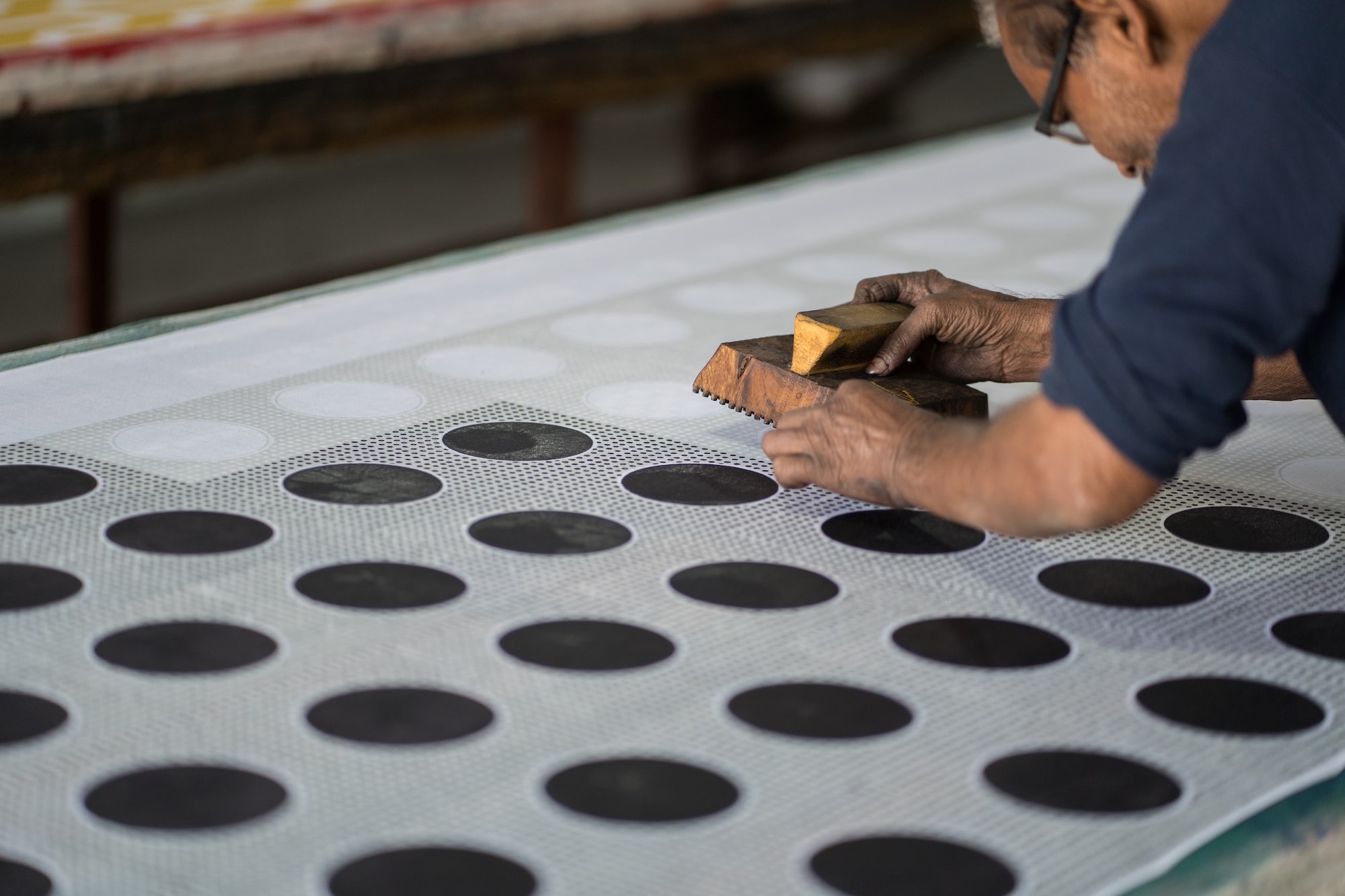
In what ways does Stain differ from other brands that are out there?
At Stain, we specialize in original textile designs. What makes us unique is that we use print design and color to stand out. Our silhouettes are staples, but we differentiate ourselves by elevating them with unique details and surface design patterns and prints.
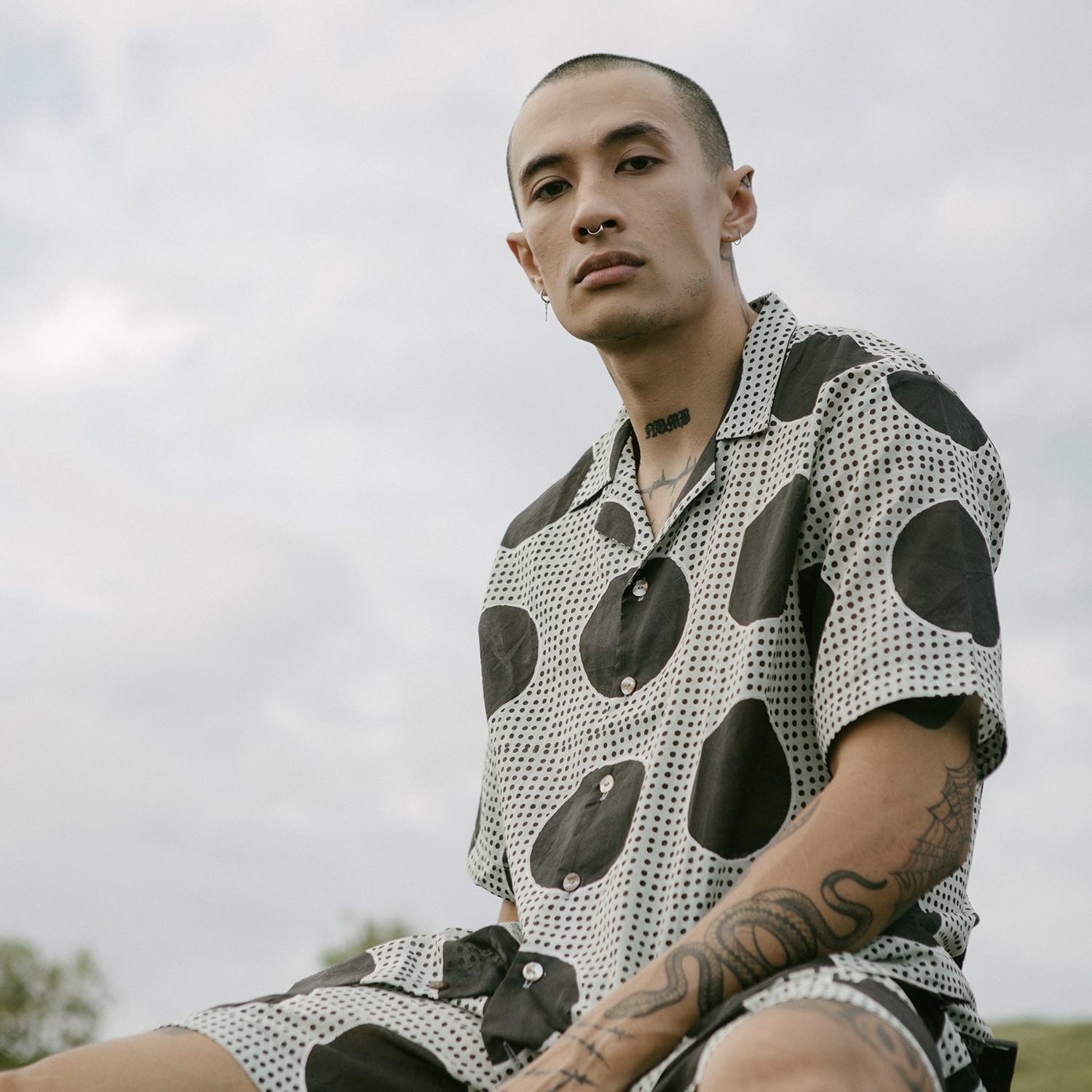
The brand follows the “slow fashion approach”. How do you apply this at Stain?
Slow fashion is a holistic approach, redefining the values of fashion through ethical and sustainable manufacturing and design. We take the time to research and develop our collections, leading us to release about one collection a year. We are able to slow down the rate of production and ensure minimal waste while preventing overproduction. We have set a standard of procedure for the artisans and workshops we work with – from sourcing materials, to sampling and final production.
Sustainability can be a tricky concept to define. What’s your definition?
I think because it is an evolving idea it can be hard to narrow down to just one definition. What sustainability means to me is that one isn’t compromising or exploiting people or the planet, and instead working to preserve and protect the welfare of both for future generations.
Do you ever get backlash from people that contradict your ethos? If so, how do you deal with this?
We have received feedback about our products being high-priced. Many people compare our prices to fast fashion prices, in which the business model is based on exploiting workers and using lesser-quality material.
When it comes to explaining this, we break down the process and associated costs of creating our garments. As I mentioned earlier, we put out one collection a year – size and volume vary as we take what we’ve learned from previous collections and use it for future ones. Sustainable products come at a higher price tag, because we rely on small-scale production and higher-quality raw materials; the workshops and artisans we work with are paid fair wages.
Transparency is key in providing people with all the information to make an educated purchase.
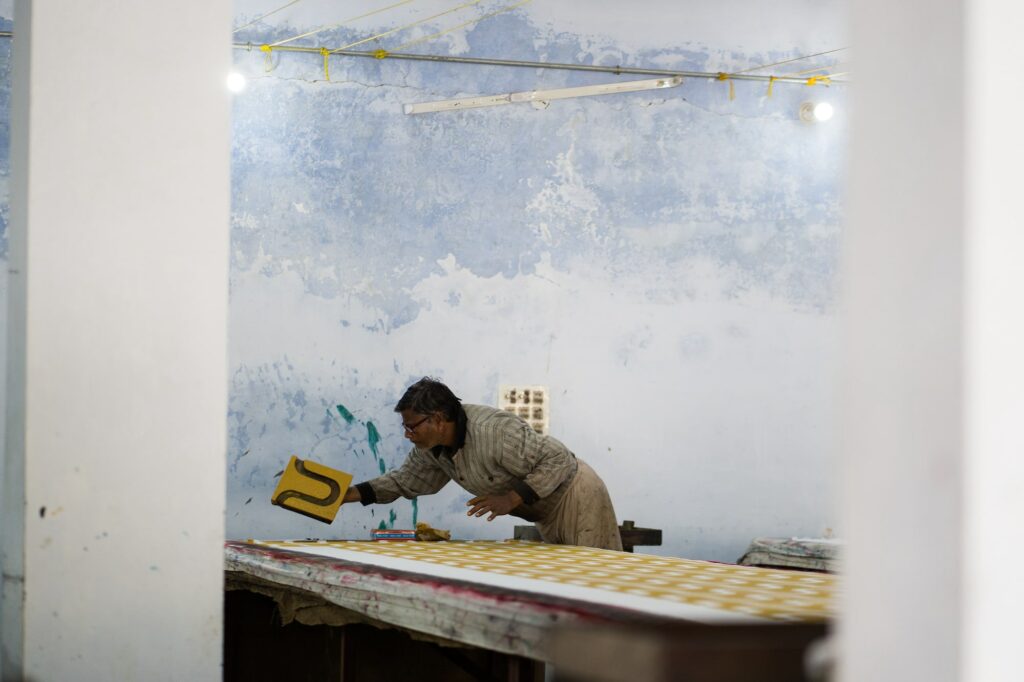
Buyers constantly look to certifications and labels to help them make sustainable choices. As a brand that does not yet have such assets, how do you go about marketing yourselves as “sustainable”? Do you have plans to incorporate these in the future?
When we start working with any new supplier, artisan, or workshop, we conduct site visits to see the working conditions and meet the employees. We have a list of questions to gather information on how they source their materials, what they do with their waste, what they pay their workers and benefits, etc.
Because we work with a lot of smaller workshops in India and Indonesia, they do not have the certifications either. What we do is build strong relationships with them, work with them hands-on, visit them as regularly as possible, and keep an open line of communication. All the information is shared on our website and social media.
We do have plans to get certifications and all the paperwork done. I think having these allows people to trust the brand, and helps us to ensure that the products are made in compliance with sustainability standards.
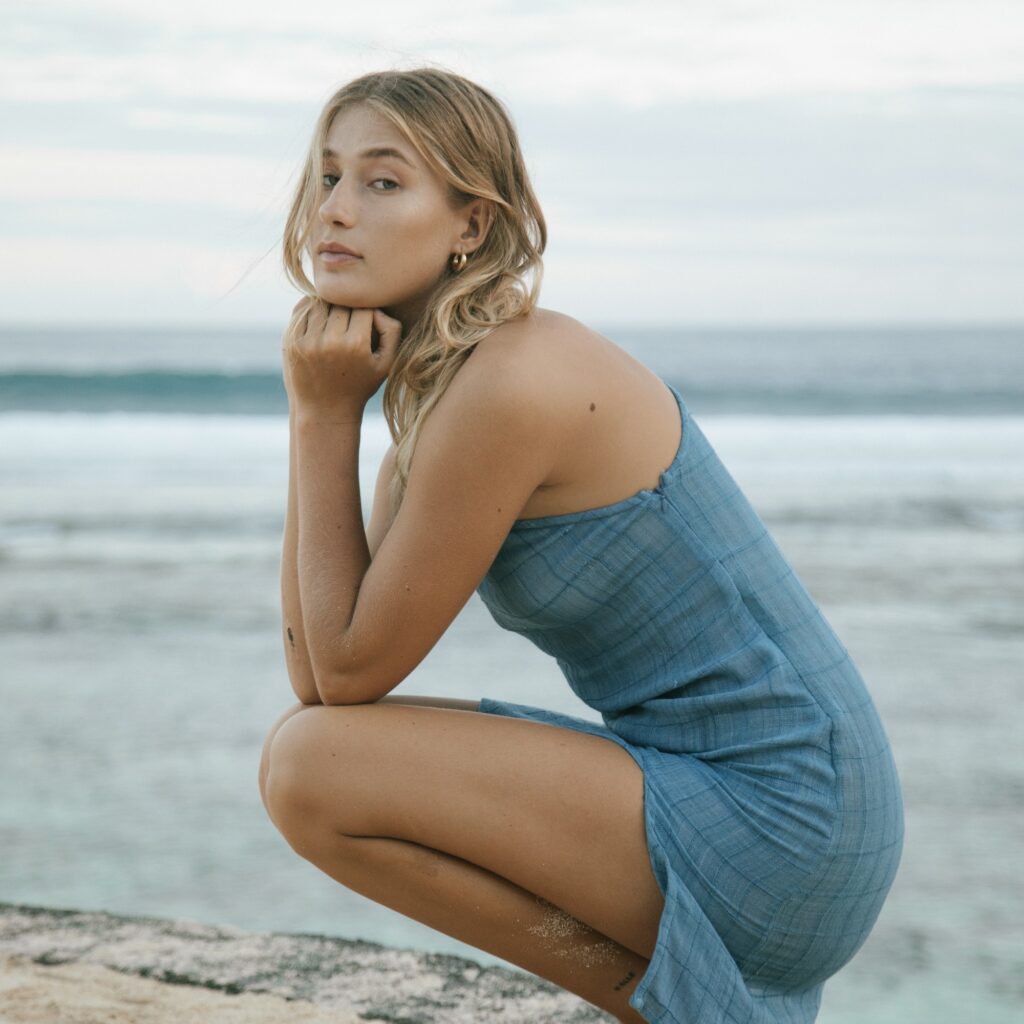
What do you consider when choosing marketplaces, influencers, and other partners to work with?
We’ve worked with many different boutiques and platforms since we launched our brand.
It ranges from offline to online platforms that curate sustainable brands. To get on their platform, they interview and audit us to make sure we are eligible and that our values are aligned. We also work with offline boutiques if our pieces fit with their other products in terms of price point, style, market, and location.
For influencers, it’s the same principle. We work with advocates of sustainability, slow fashion, and sustainable fashion.
What other sustainable fashion brands do you admire?
- Mara Hoffman
- Loti
- Topiku
- Gabriela Hearst
- Nicobar
Aside from sustainable fashion, what are some of the most exciting sustainable brands that you’re following at the moment?
- https://www.harathelabel.com/ – sustainable, ethical, natural, plant-dyed bamboo intimates
- https://spaceavailable.tv/ – a creative platform and ecological design studio
We could be on the verge of an economic crisis, do you think this could present any problems for sustainability’s… sustainability?
The economic crisis could be a product of the lack of sustainable economic models.
The core of sustainability is to play the long game in maximizing long-term benefits, requiring companies/brands to consider the big picture. However, the financial system can be unsupportive. The crisis might decrease spending because people will be much more mindful about spending their disposable income on sustainable products, which might yield short-term losses.
However, a crisis could open up the conversation or opportunity for businesses to rethink their business models. Sustainability isn’t an afterthought or a product of corporate social responsibility, but something that the whole business should be modeled around.
To take a closer look into the processes and people behind Stain, be sure to check out their website.
If you’d like to discover more sustainable brands, here’s another post from Akepa on a startup designed to bring you to the right places…
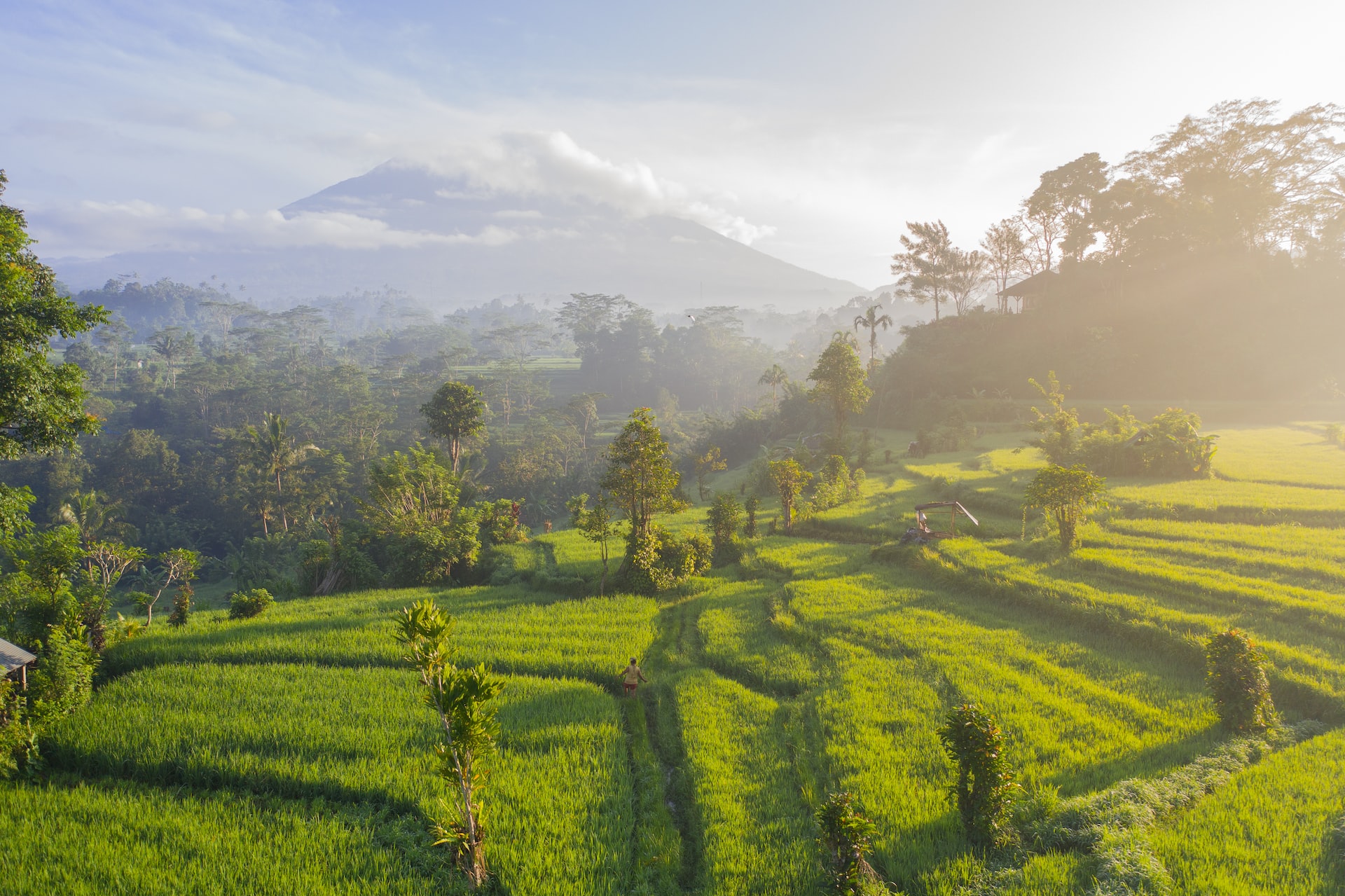


Leave a Reply